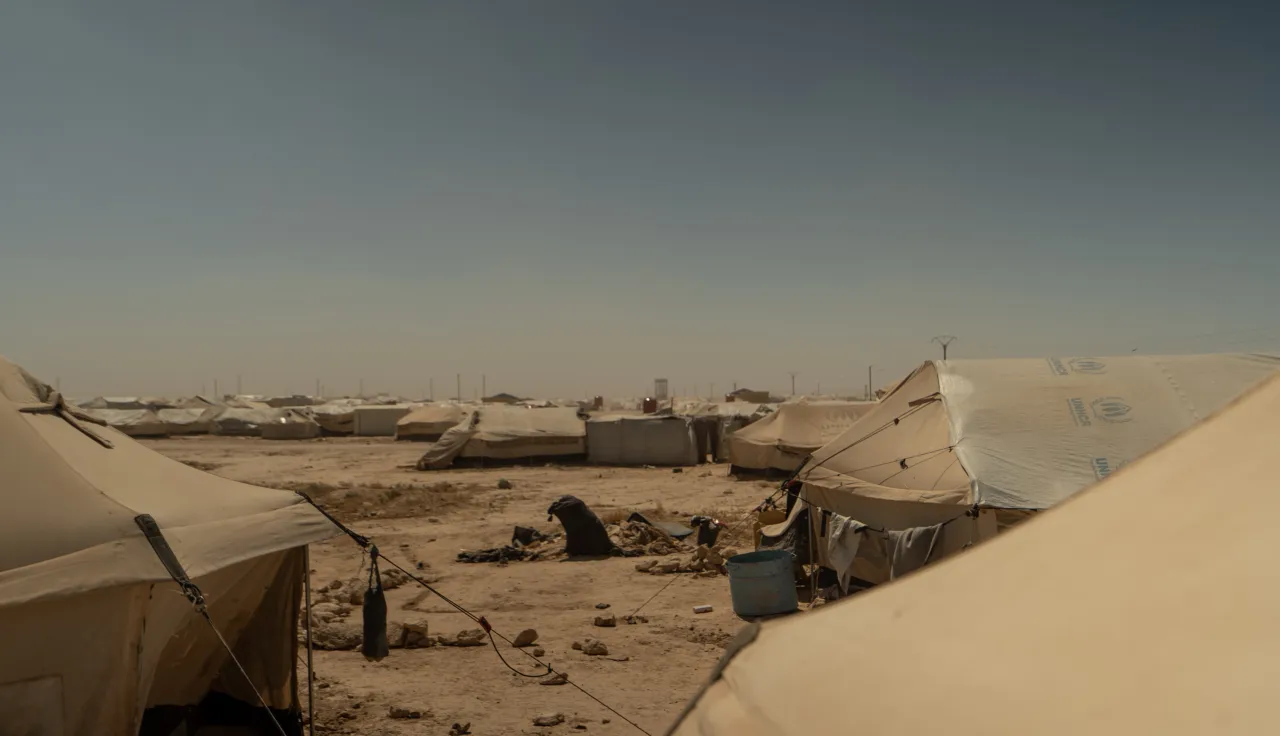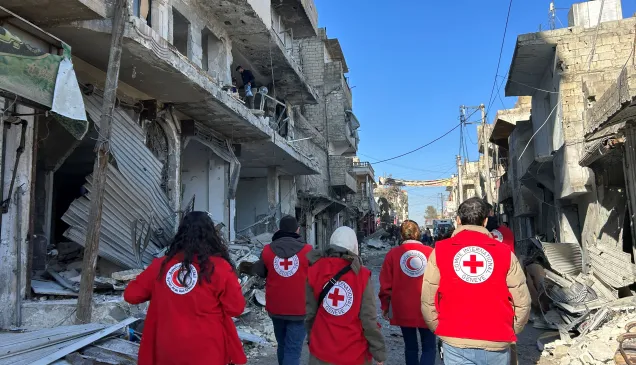Briefing on Humanitarian situation of Stranded and Detained People in Northeast Syria
"The past decade has been one of savage loss for Syrians. Many of you have seen the intense suffering with your own eyes - the destruction in cities, the crumbling of vital services.
And within this immense tragedy, one of the most complex child protection crises today is deepening in the northeast.
There, tens of thousands of children are stranded in camps, in appalling conditions no child should experience. And hundreds of children – mostly boys, some as young as 12 – are detained in adult prisons, places they simply do not belong.
These children are Syrian, Iraqi and from dozens of other countries. Some are with their family members, some are orphaned or separated from loved ones. All must be treated first and foremost as victims.
---
I've worked around the world with ICRC in conflict zones, but visiting Al Hol - this camp full of children - is a particularly harrowing experience every time.
I was last there in March, my fourth visit in as many years. I saw a situation even worse than before.
To give you a sense of the scale of what we are facing - Al Hol camp has existed since the 1990s when it became home to around 10,000 Iraqis after the Gulf War. Some are still there.
Now, Al Hol houses around 60,000 people from more than 60 countries. The majority are from Iraq and Syria, and 90% of them are women and children. It's estimated there are around 40, 000 children growing up in these squalid, often dangerous conditions.
My first time there was in 2019 - as people fleeing intense fighting in Baghouz started to arrive at the camp.
The suffering was horrifying. Thousands of women and children turned up covered in dust, hungry, cold, in shock, many having travelled hundreds of kilometres.
There were people with fresh wounds from explosive weapons, many amputees, and people with injuries that had been clearly untreated for months.
In those early weeks, almost half of all patients our field hospital treated were children. Many succumbed to their horrendous injuries just after reaching the camp.
Three years later – of those who survived, most are still there.
Al Hol camp is desert and tents as far as the eye can see. There is a pervasive sense of hopelessness among the thousands of people left in limbo, all of whom need a prospect of a future.
The medical needs remain huge, including mother and child healthcare, pediatrics, surgery, mental health, and physical rehabilitation. We saw an increase last year in the number of children who died, including some from apparently preventable conditions.
Conditions in the camp are harsh for all, children and adults. Families have been separated during transfers to other camps or places of detention, including separating children from their mothers.
Boys in particular live in a state of constant fear and mistrust. Once they reach a certain age, many are separated from their families and transferred to adult places of detention, which are no place for children.
Children in detention should be either reunited with their families in camps, repatriated alongside them or have alternative care arrangements made for them. Seriously ill people should be given priority for repatriation.
And of course – the situation of thousands of adults must not be overlooked. Nobody is beyond the law and everybody has a right to due legal process and humane treatment.
---
Three years after I first set foot in Al Hol, one thing is clearer than ever: It is not impossible to act. The task is mammoth and complex, but this can't be used as an excuse for inaction.
Crucially, states do not have to tackle this alone. In fact, there are no alternatives to international cooperation and collective action towards long-term solutions.
Expertise and guidance are available, including from the ICRC. International law provides a framework to help break down the issue. States can learn from one another. Good practices can and should be shared.
And let's recognize that positive examples of repatriations do exist. There are states that have brought mothers and children home, keeping families together as international law requires. There are states who are making efforts to prosecute and/or reintegrate people and follow-up humanely.
The window of opportunity to act, to prevent further distress and suffering is there. But it is narrowing.
The moment for states to act humanely and responsibly - to remove their citizens from such conditions - is now. The needs are immense and the cost of inaction is high, for everybody.




